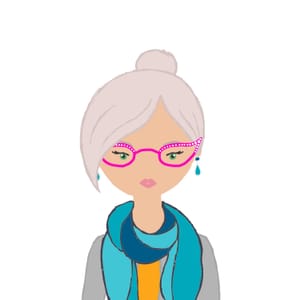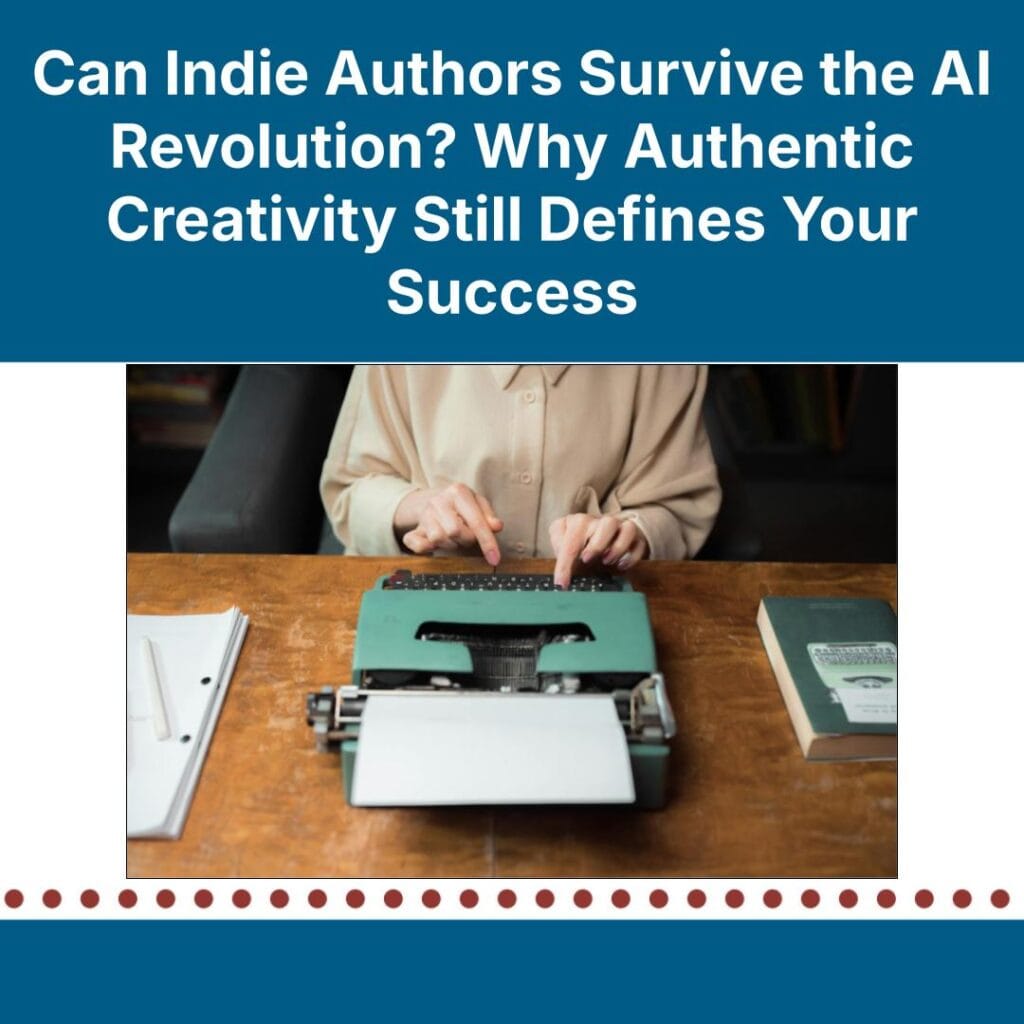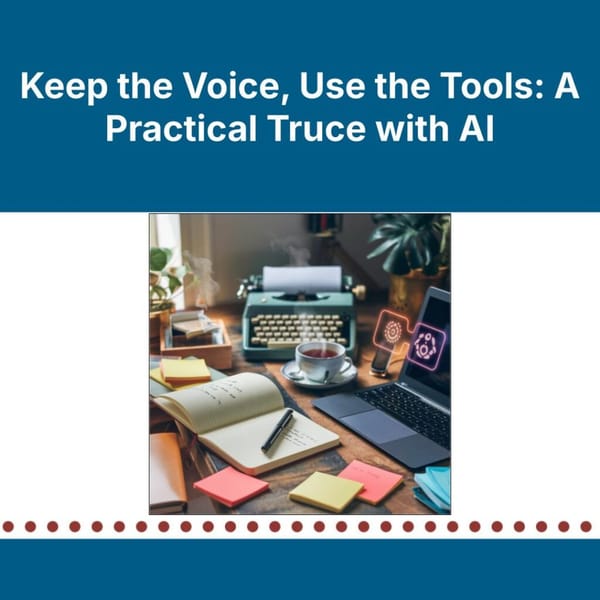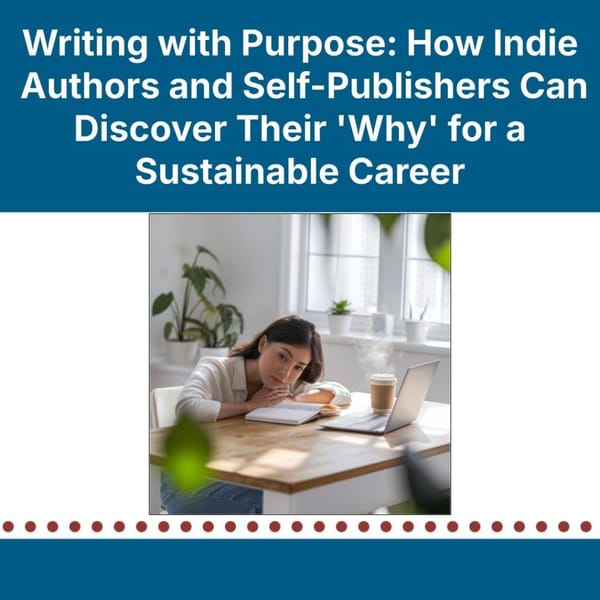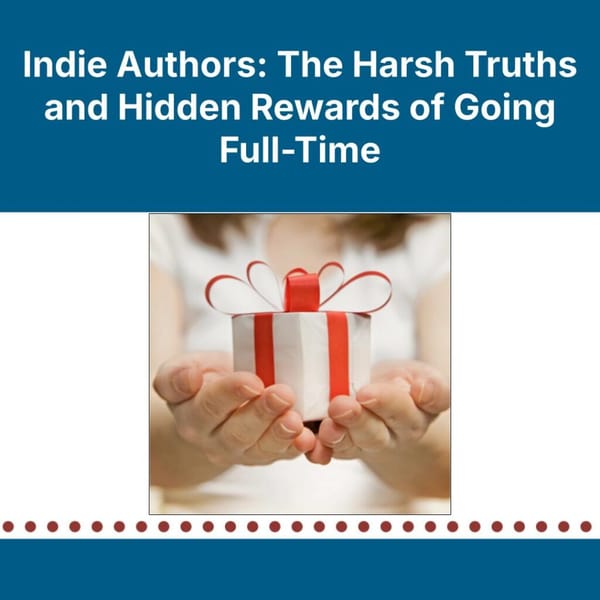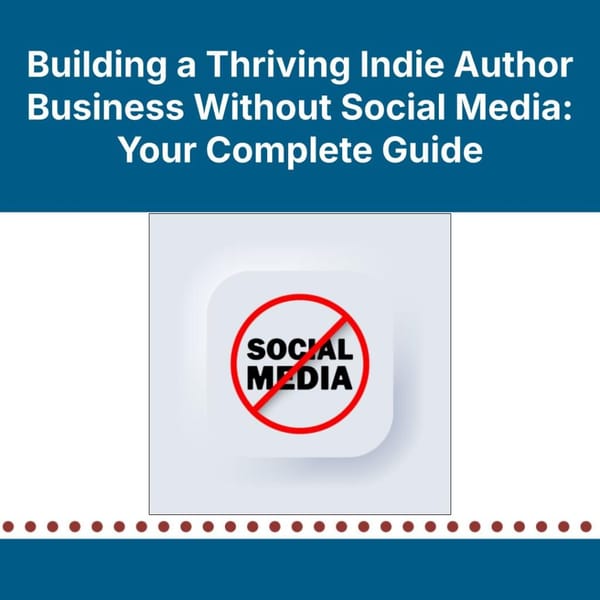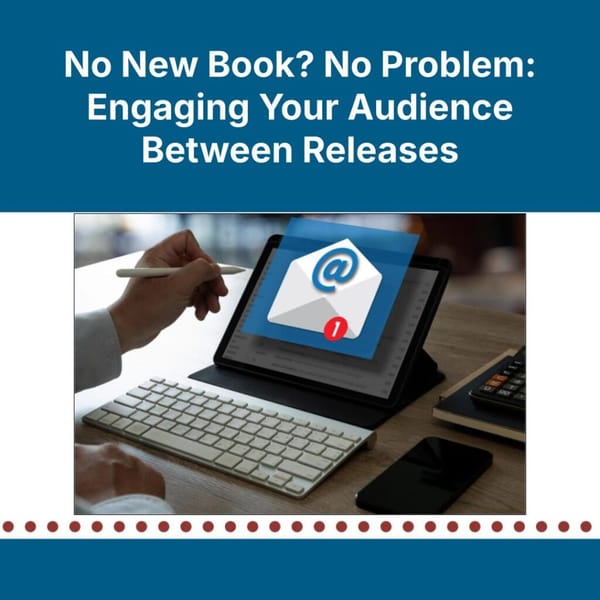Dear Indie Annie,
Technology seems to get a lot of attention these days. Does an old-time creative novel writer, grinding out a daily output, still have a place in a world of competitive AI? (Because I really don’t want some algorithm selecting my words!)
Outpaced by AI
Dear Outpaced by AI,
Listen up, darling, because we’re about to have a heart-to-heart about the digital dragon breathing down every writer’s neck.
I understand your fears; I truly do. I am old enough to remember drafting ideas in my favorite Moleskine notebook, often at my special corner of the municipal library, and going home to write up my words on a manual typewriter. I stored my research on index cards and scrapbooks overstuffed with newspaper clippings.
But I can’t recall the last time I stepped foot inside a library. My words are now backed up automatically on the cloud from my portable electronic drive. And my research is a Google away. Sometimes, shifting away from my old habits was harder than hitting a concrete pillar in a snowstorm. Other times, I embraced technology’s advantages, like Lydia Bennett embraced eloping with Captain Wickham. And like it was for sweet Lydia, though the move was considered foolish by many, it turned out just fine.
Now, I know there is not always a wonderful Mr. Darcy on hand to smooth out the bugs. Technology is like that overeager party guest who shows up uninvited, raids the literary buffet, and acts like they own the place. But here’s the tea, sweetpea: Creativity will not bow to the restraints of digitalization or those of a mystical mathematical equation. It’s a wild, untamed beast that lives in the human heart.
Imagine AI as the flashy new sports car zooming down the literary highway. Sleek? Absolutely. Fast? You betcha. But that’s all it’s built to do. Can AI capture the nuanced heartbreak of Wuthering Heights? Can it understand the delicate dance of human emotion that transforms simple words into poetry? Darling, please.
Your fear is valid—and entirely misplaced. These algorithms might generate text faster than you can say “plot twist,” but they’re serving up word salad while you’re crafting a five-course literary feast. They’re collecting data; you’re collecting souls through your storytelling. You are a master chef in a world of microwave meals. Sure, AI can quickly heat up some generic content, but can it understand the subtle blend of spices that makes a truly memorable dish? Can it feel the passion behind each carefully chosen ingredient? Not a chance.
From Chaucer to Sarah J. Maas, great writers throughout history haven’t just survived technological shifts; they’ve thrived. When typewriters replaced handwritten manuscripts, writers adapted. When computers replaced typewriters, writers evolved. Writers have charted the path from oral traditions to mass publication, and this AI revolution? It’s just another chapter in the ongoing story of human creativity.
Here’s your battle plan, my literary warrior: Embrace technology as a tool, not a threat. Use AI for research, editing assistance, or brainstorming. But never—and I mean never—let it replace your unique voice. Your experiences, your pain, your joy... these are the secret ingredients no algorithm can replicate.
Remember, darling, algorithms can generate text, but they can’t generate truth. They can compile information, but they can’t create meaning. They’re a paint-by-numbers kit trying to compete with a Picasso.
Your humanity is your superpower. Your ability to transform personal experiences into universal truths? That’s magic no machine can manufacture. So stand tall, grip that pen—or keyboard—like the literary warrior you are, and remind yourself that AI might be able to generate a thousand words a minute, but it will never understand the beauty of a single, perfectly crafted sentence that makes a reader’s heart stop.
Keep writing, keep feeling, keep creating. The algorithms can wait.
Happy writing,
Indie Annie

